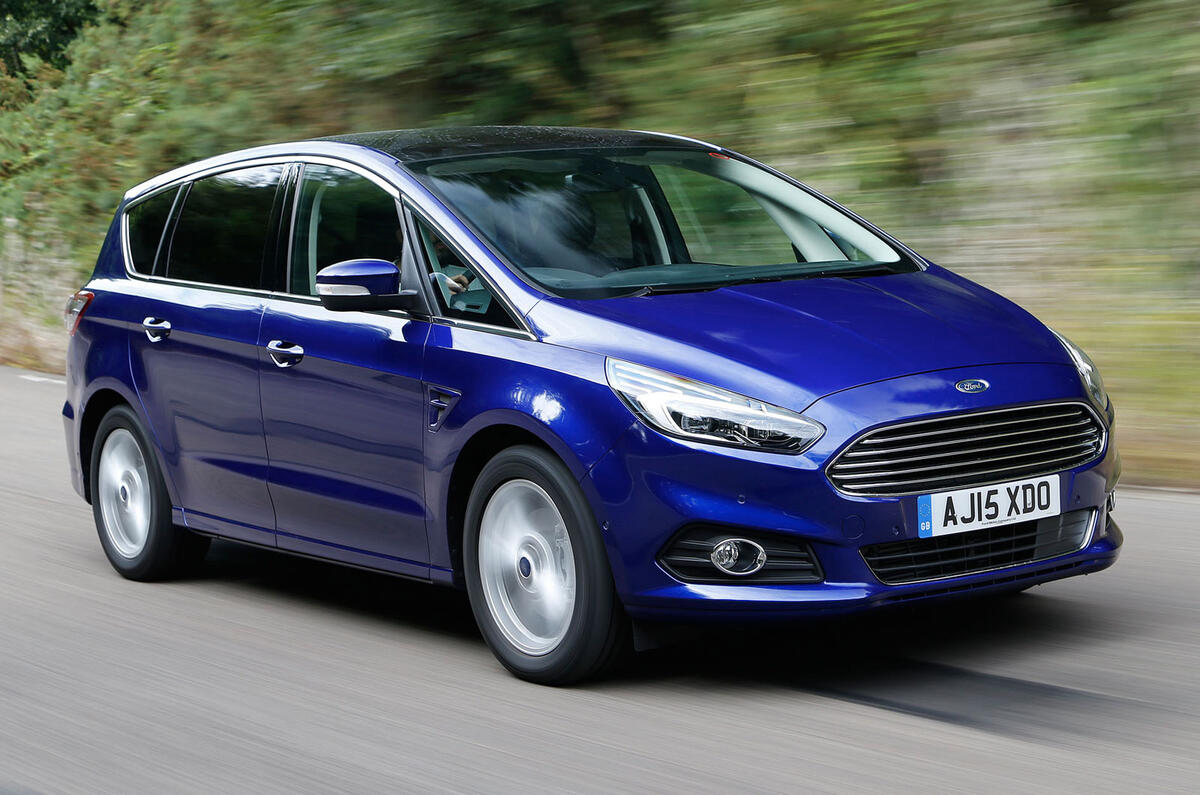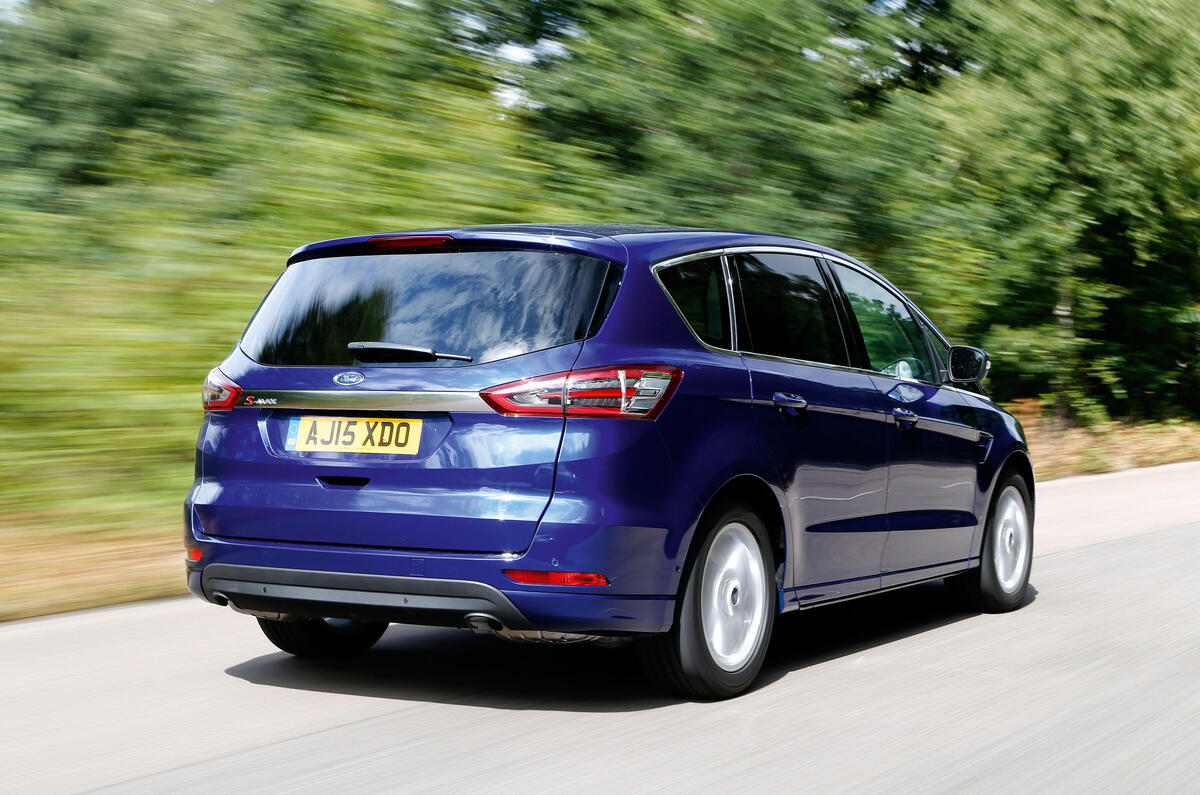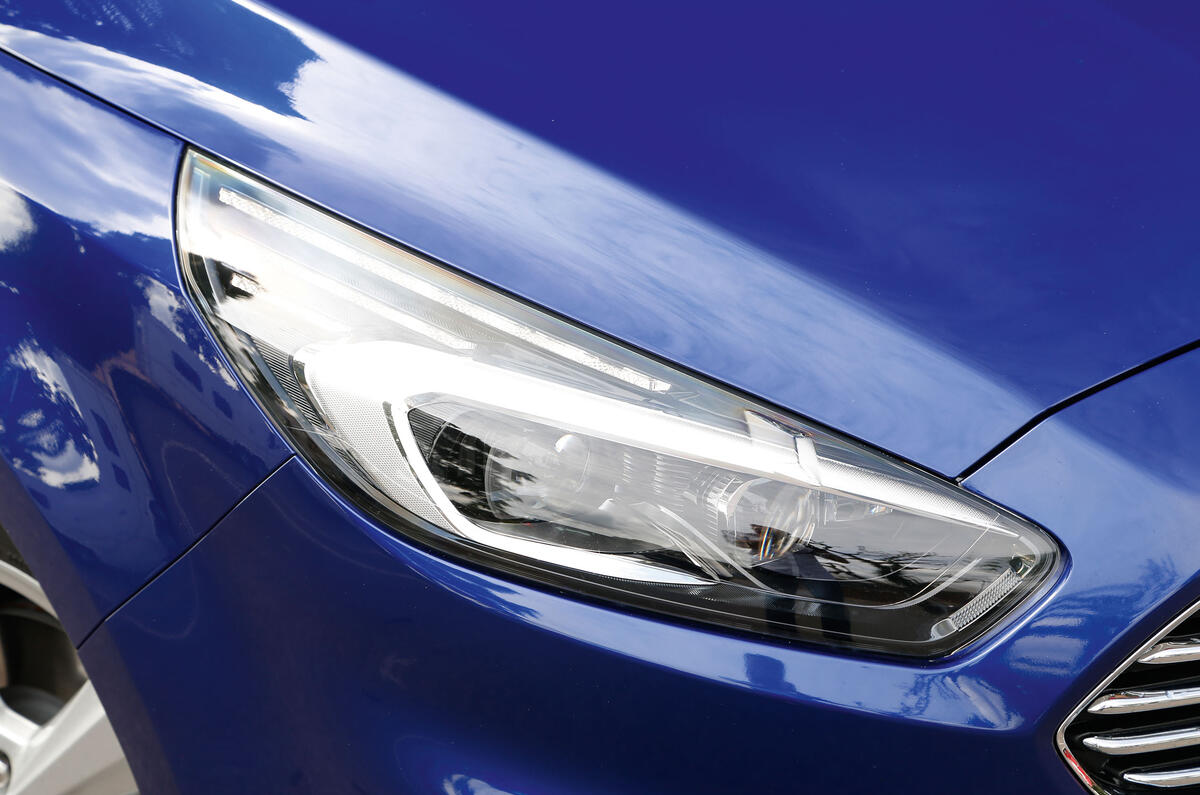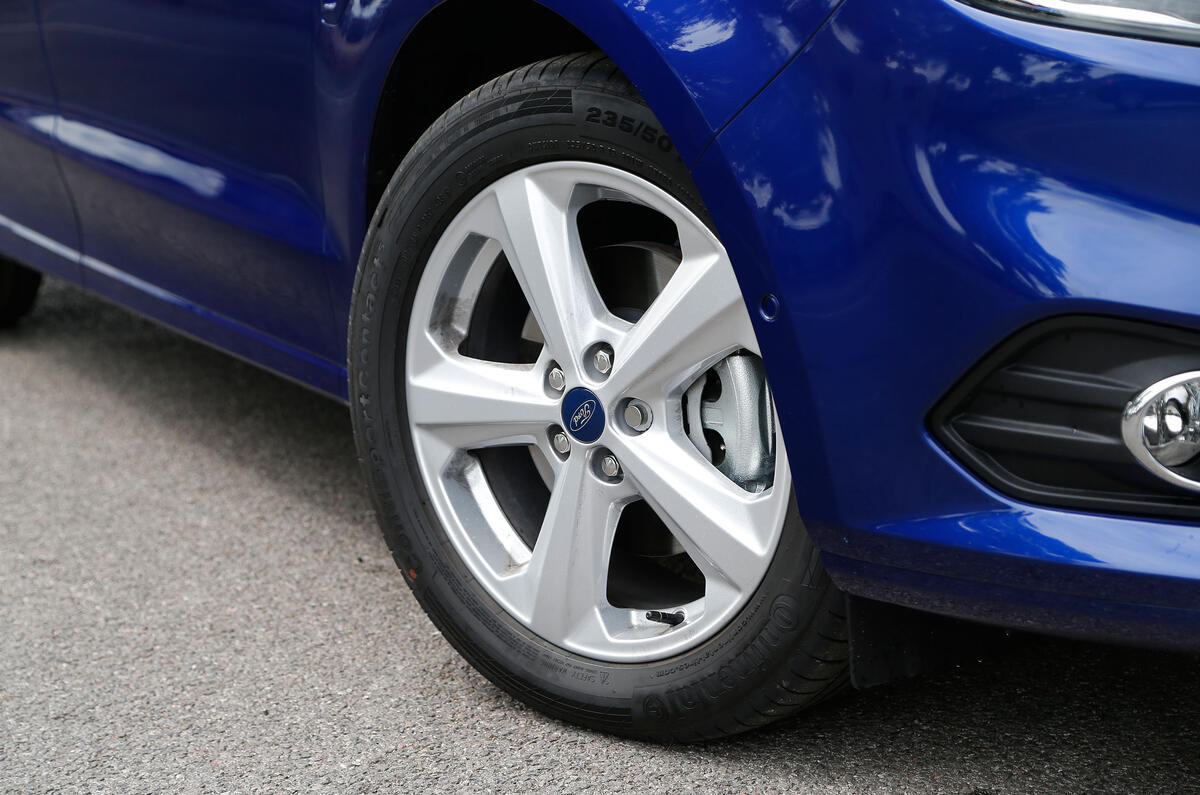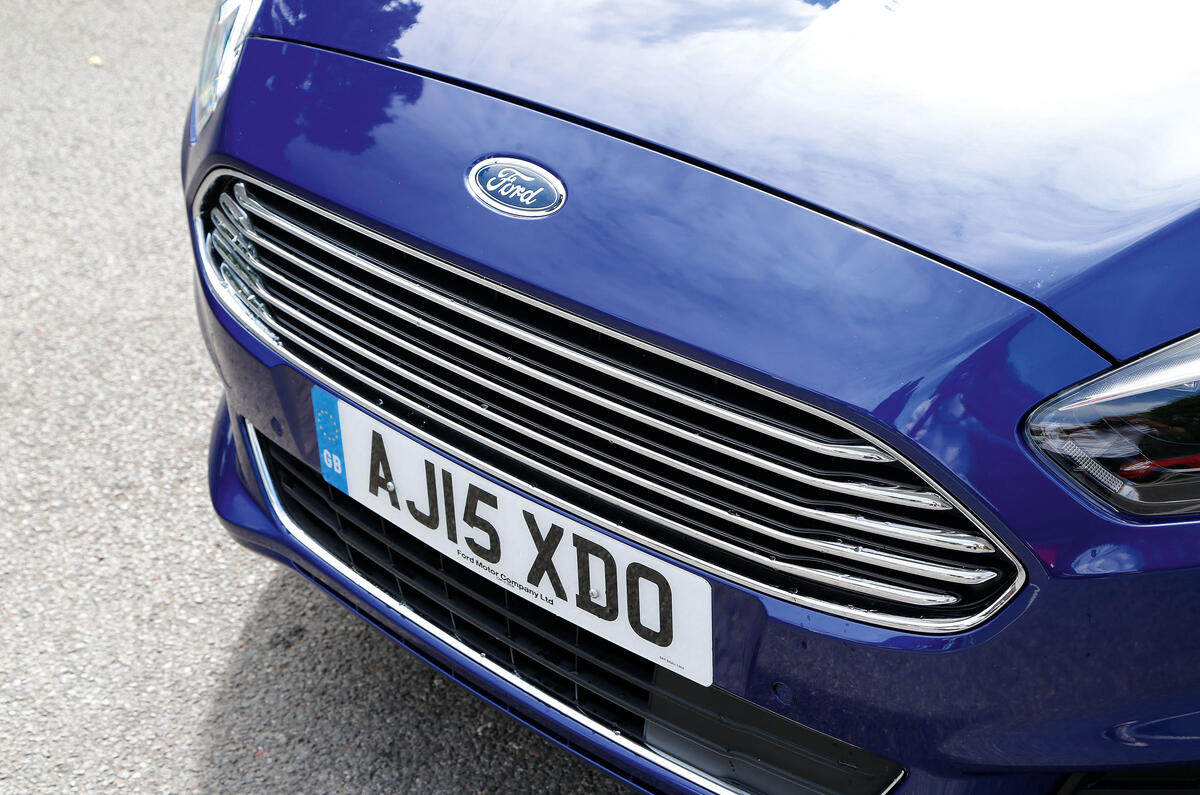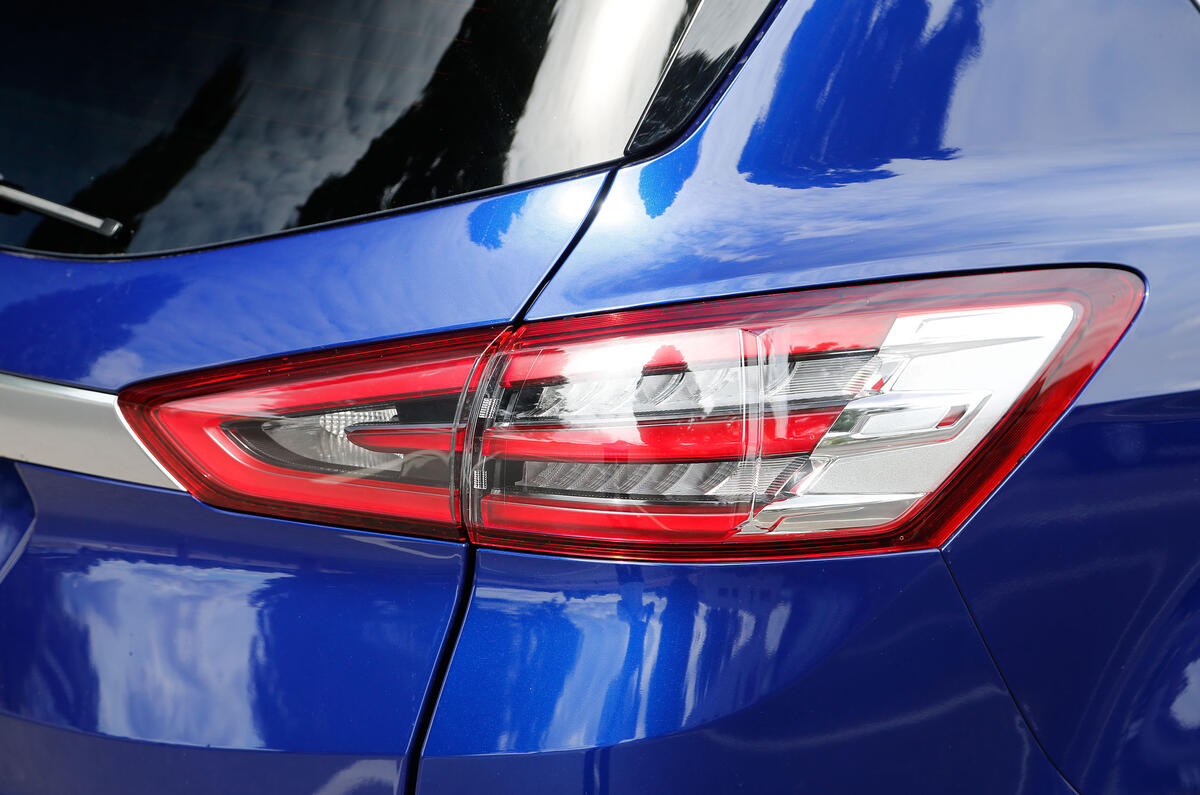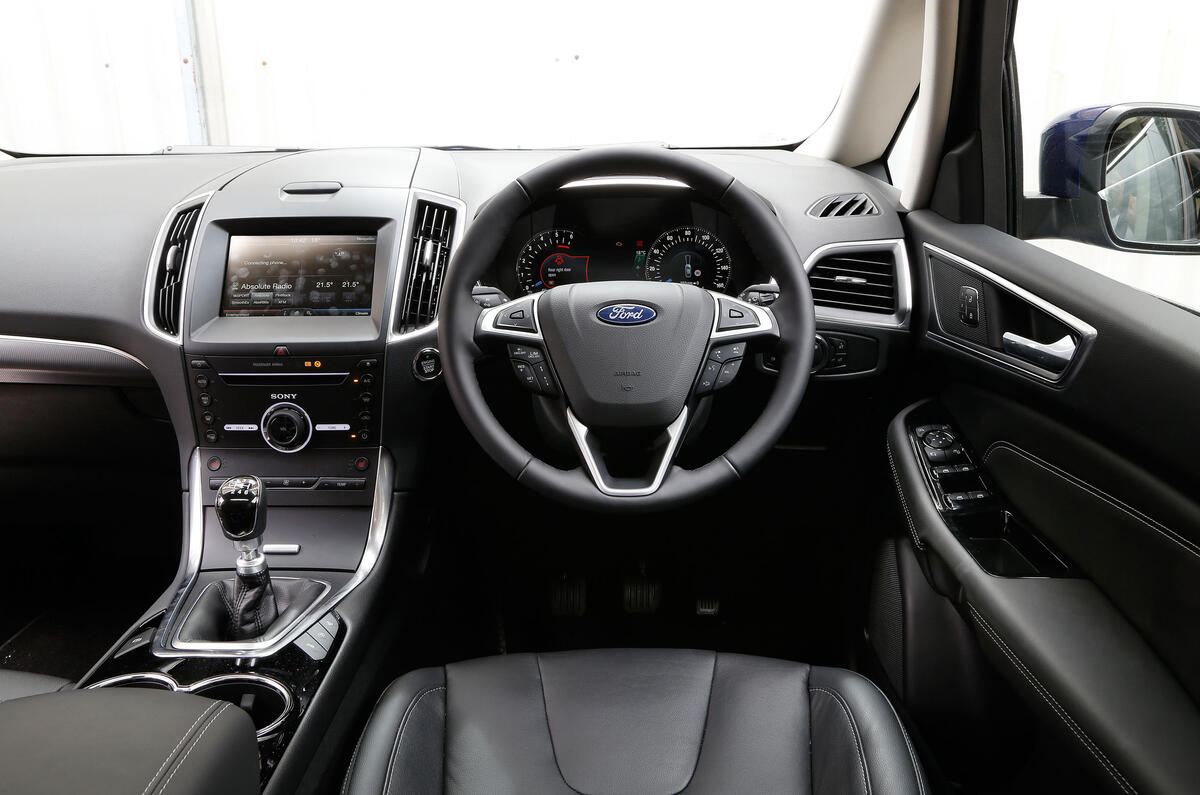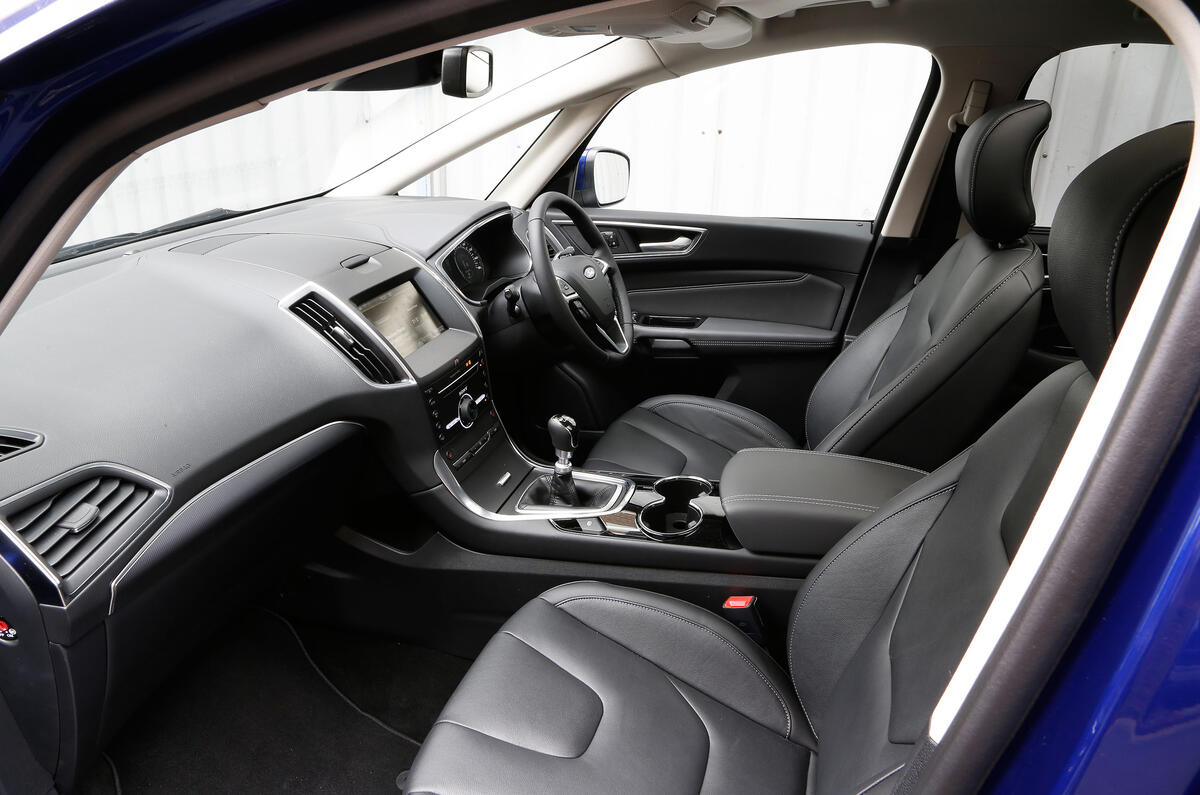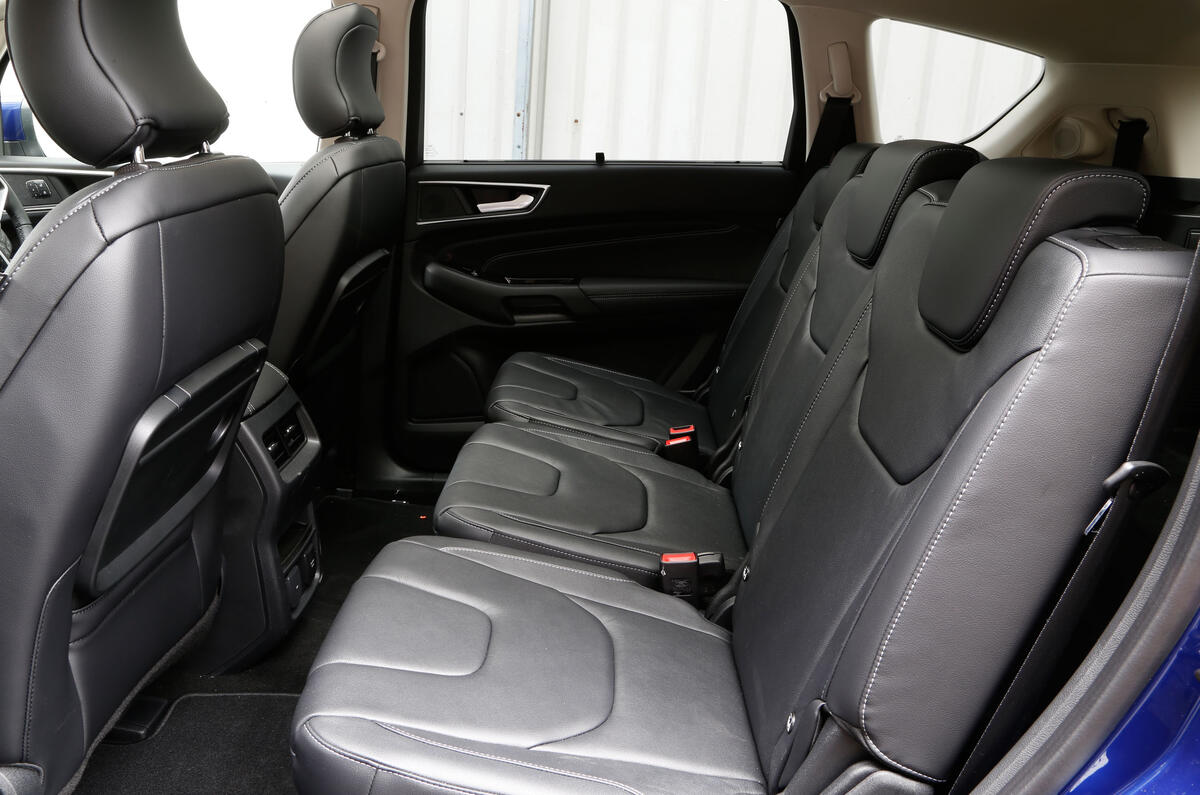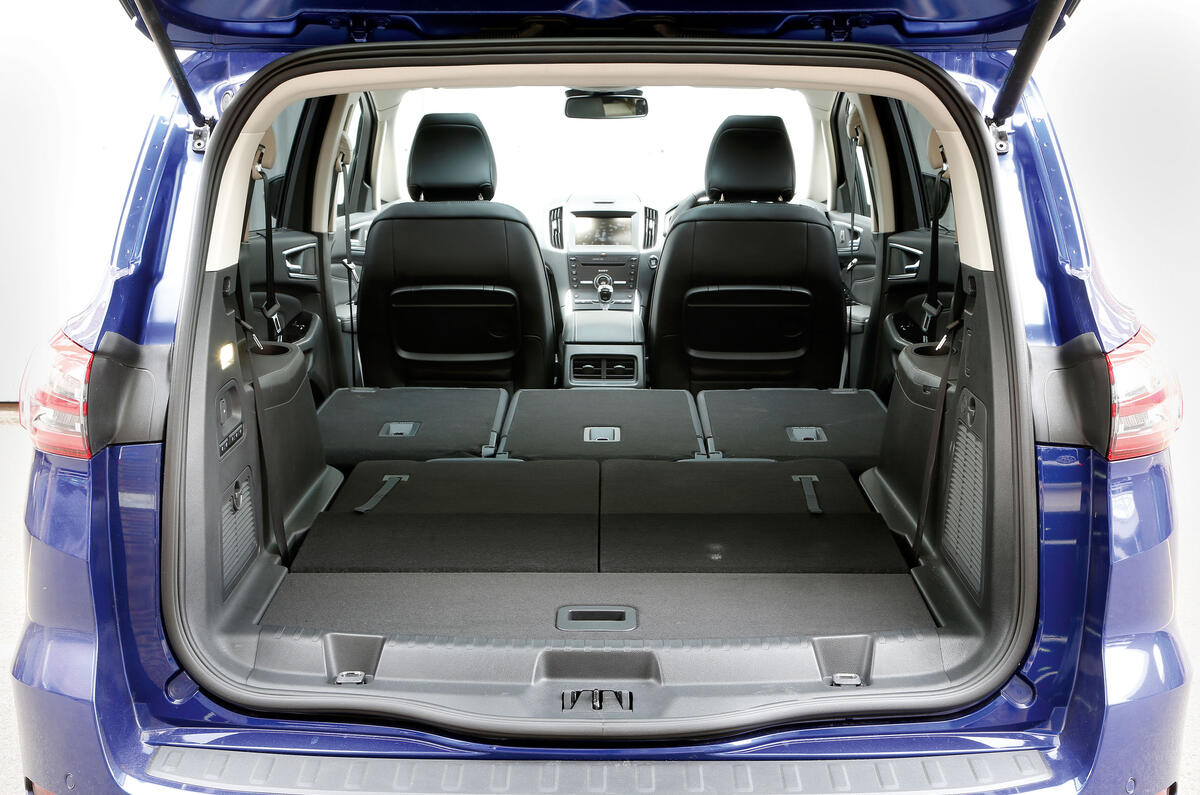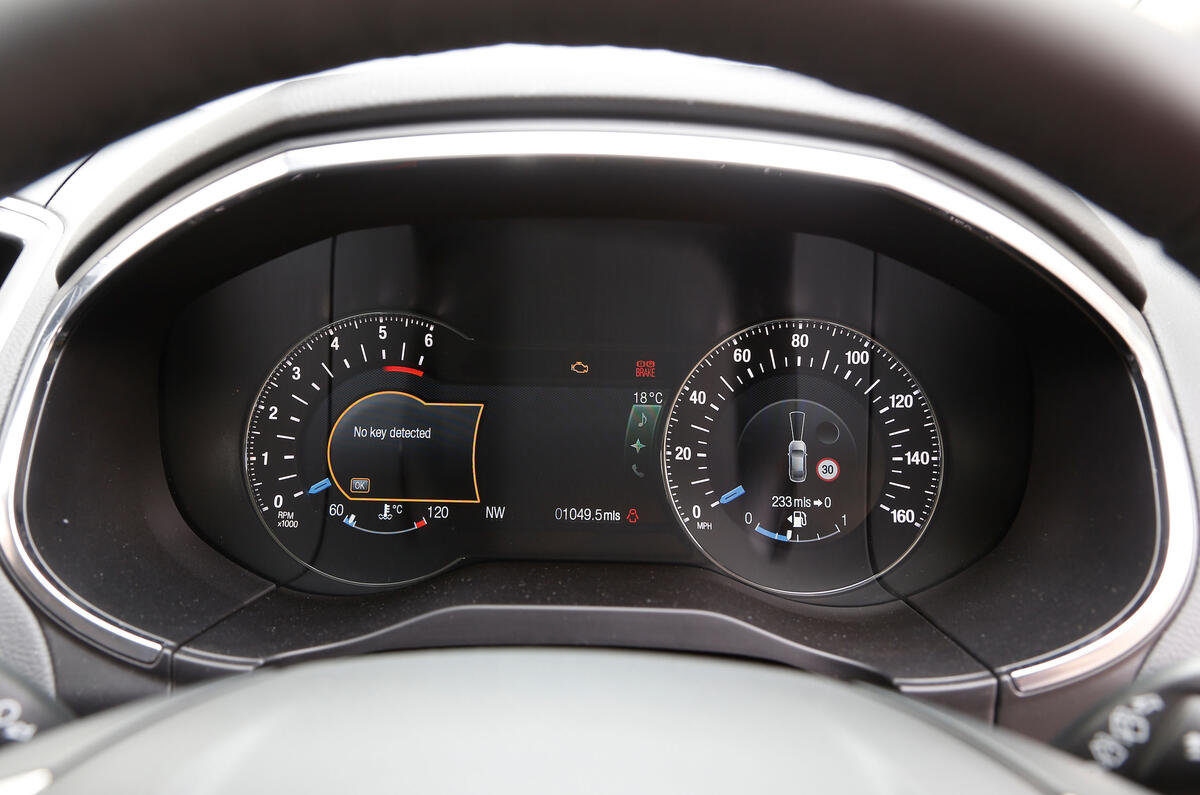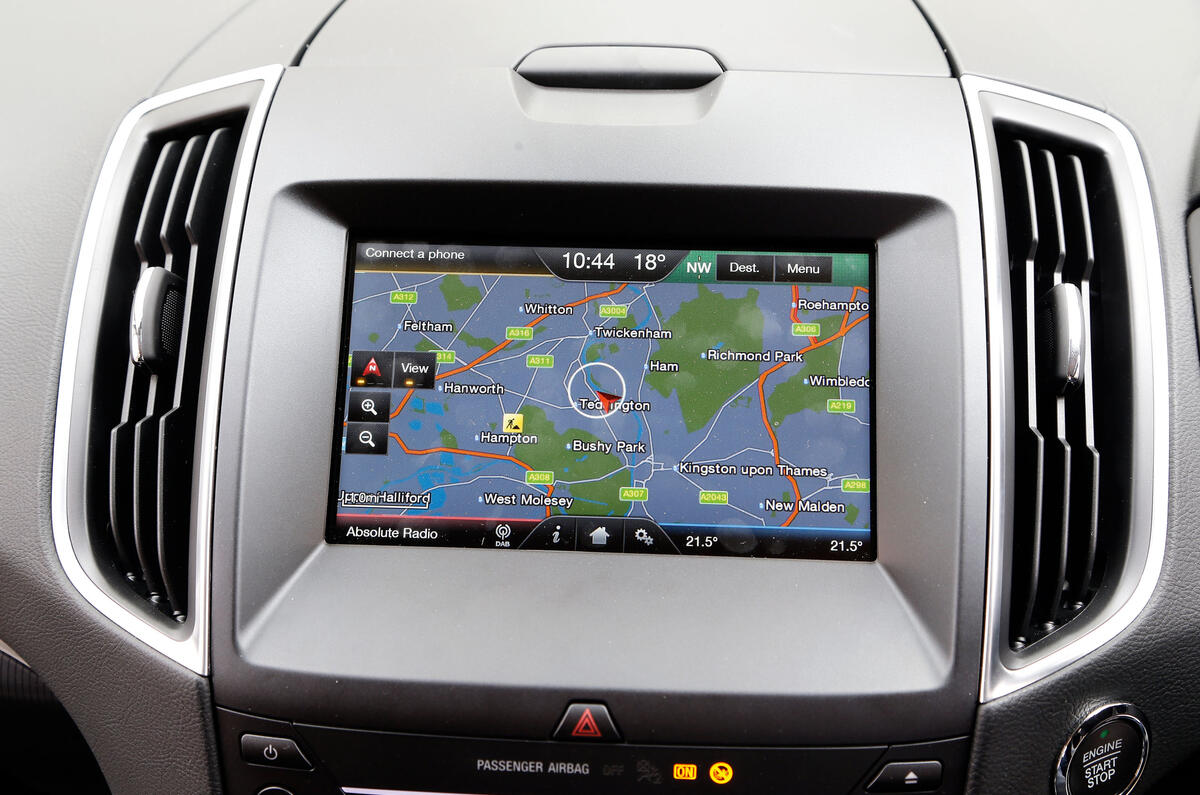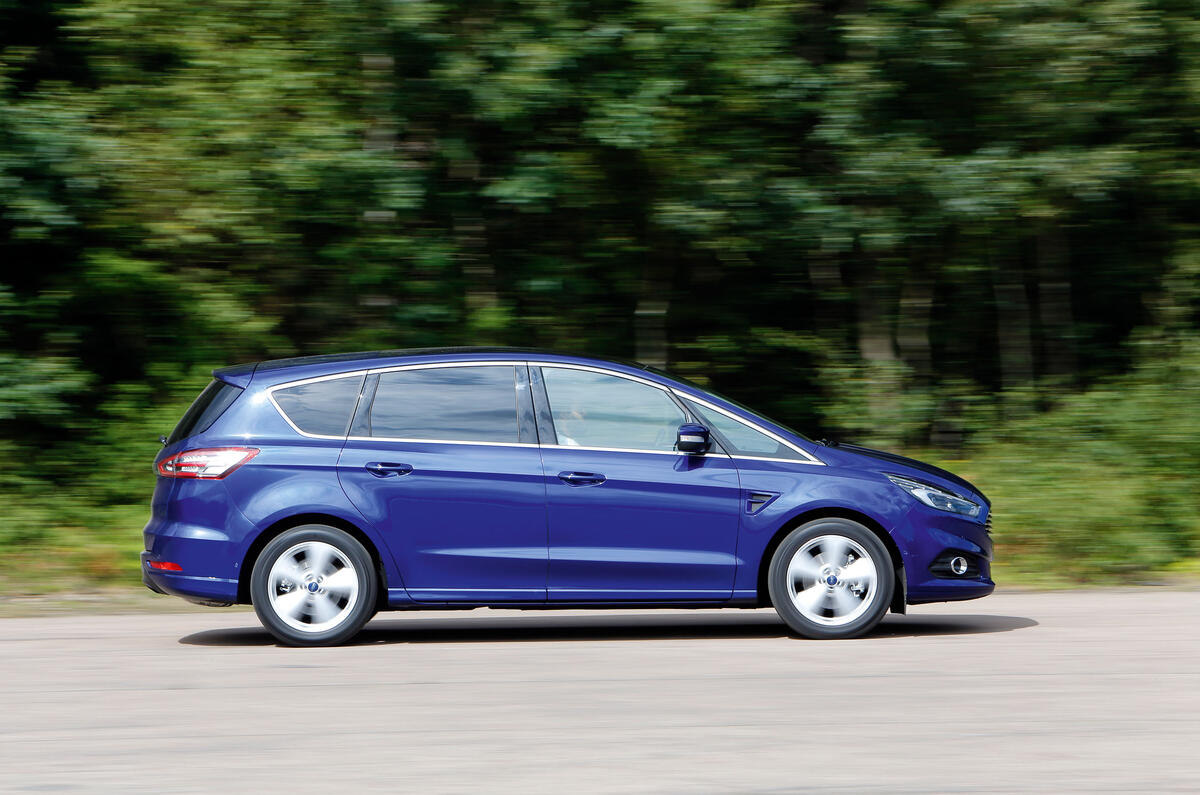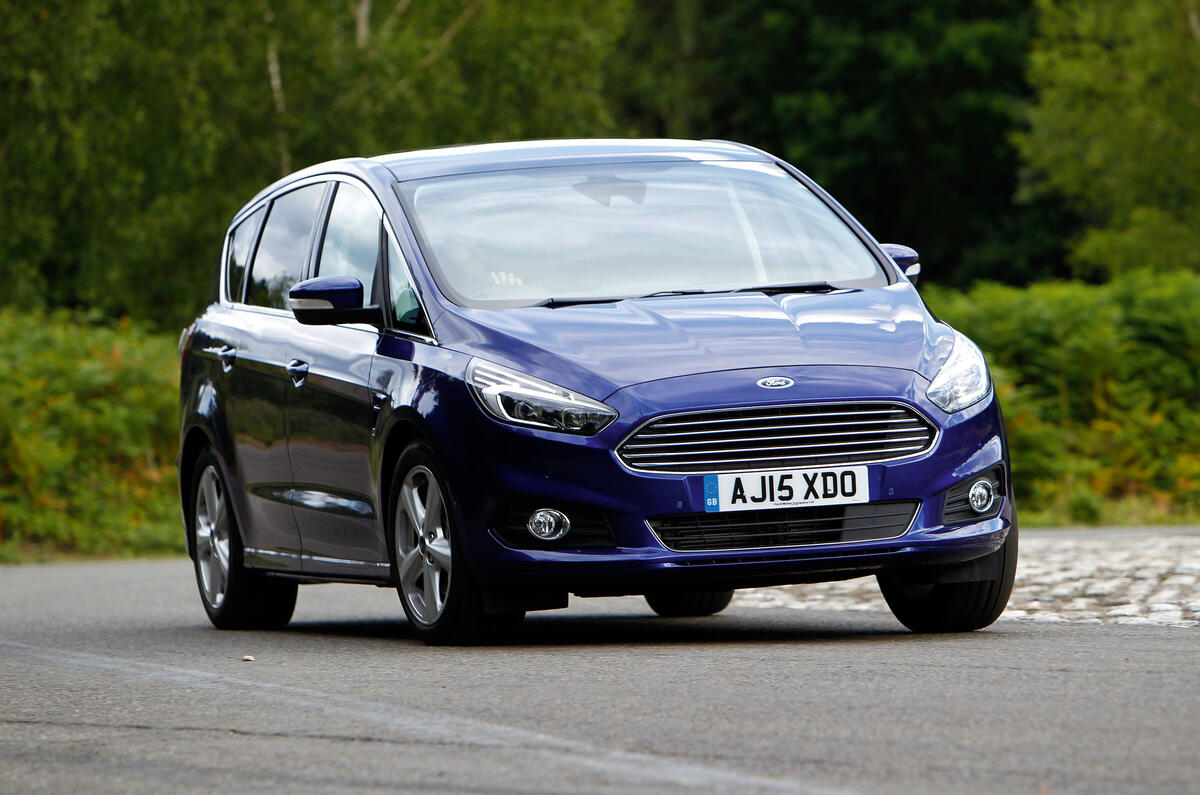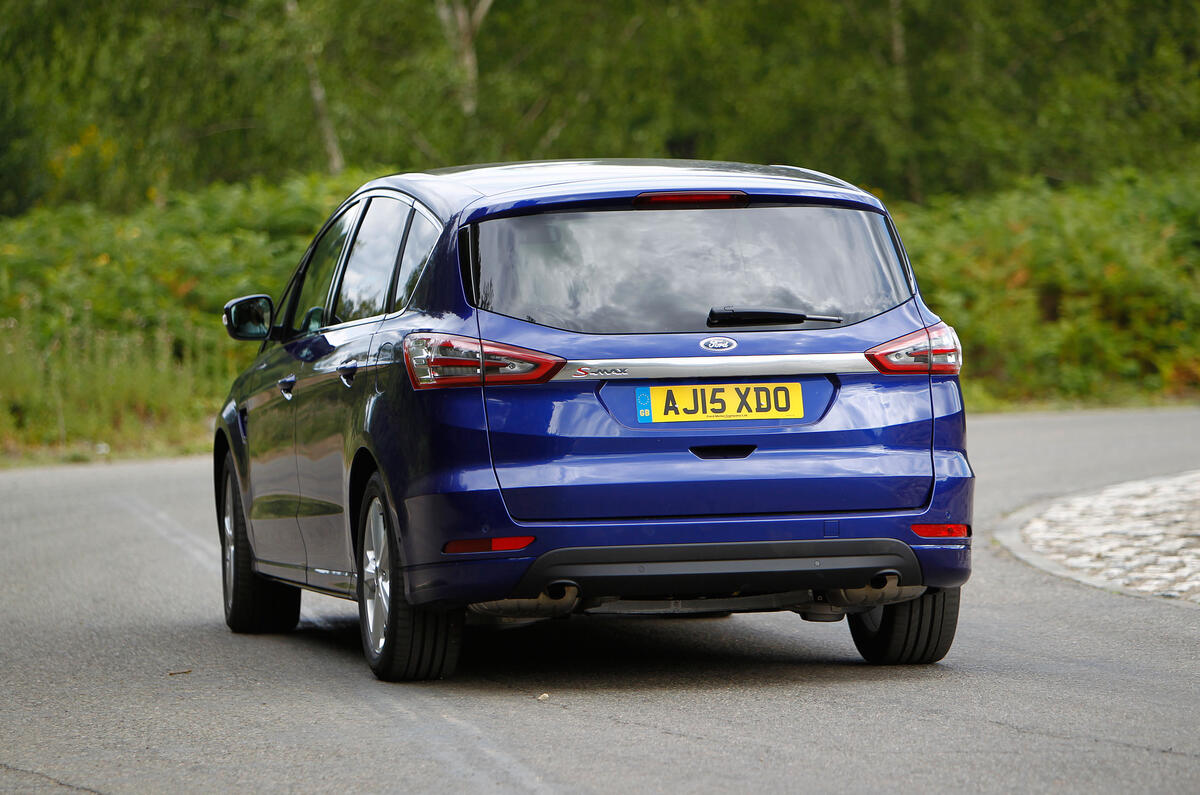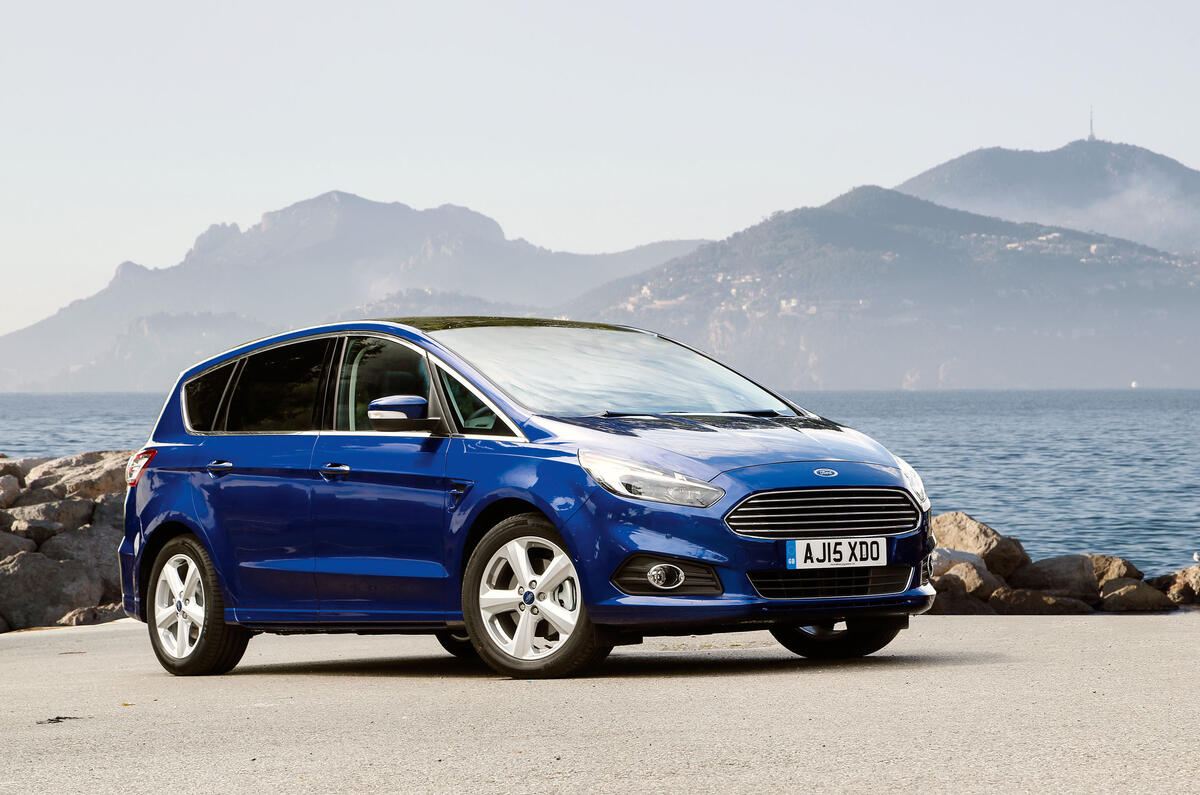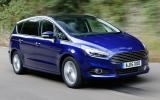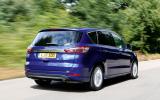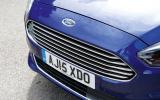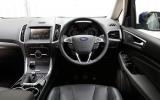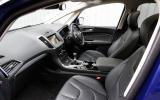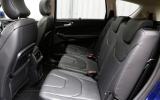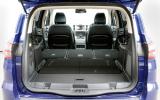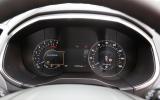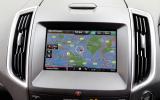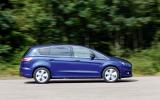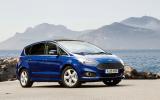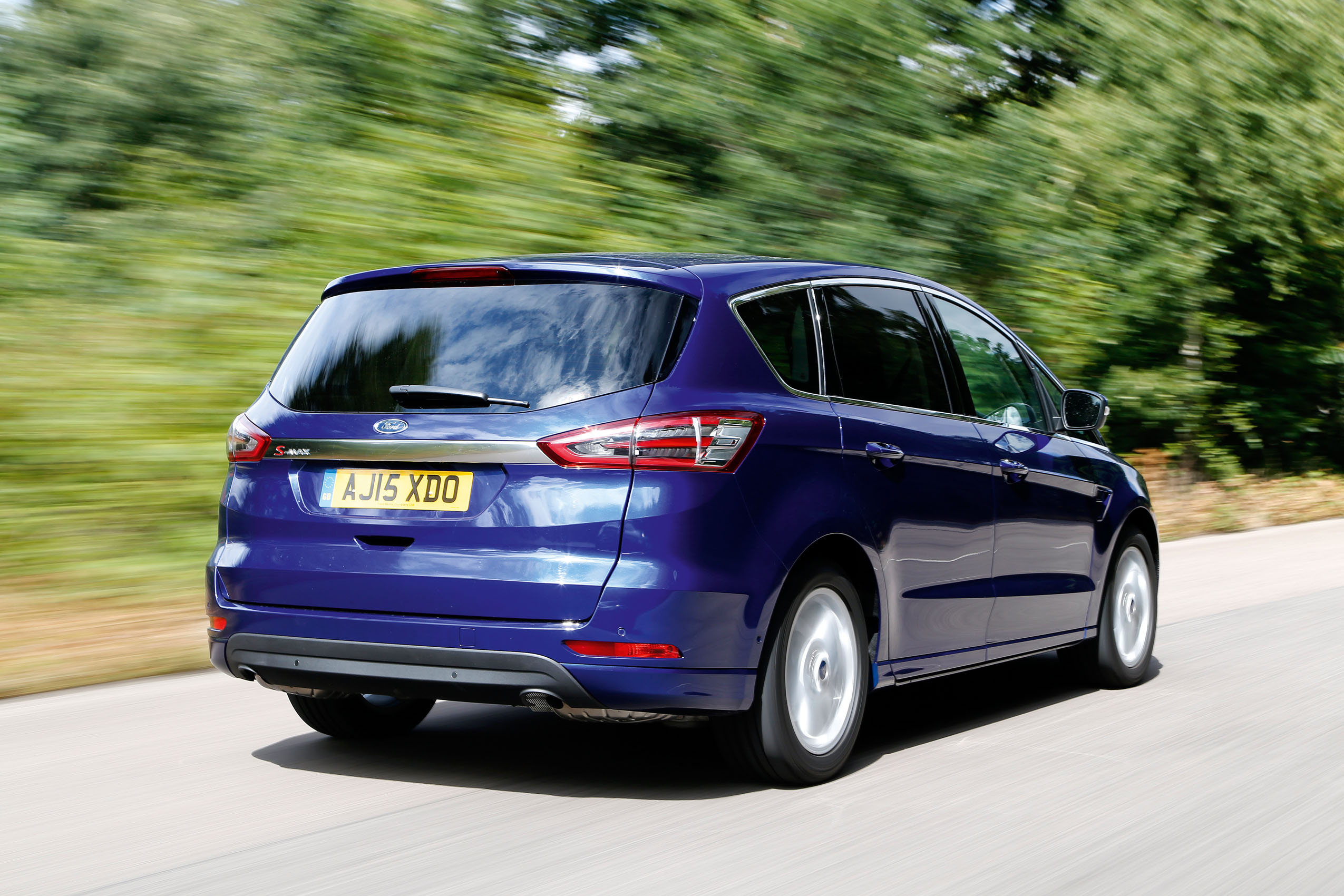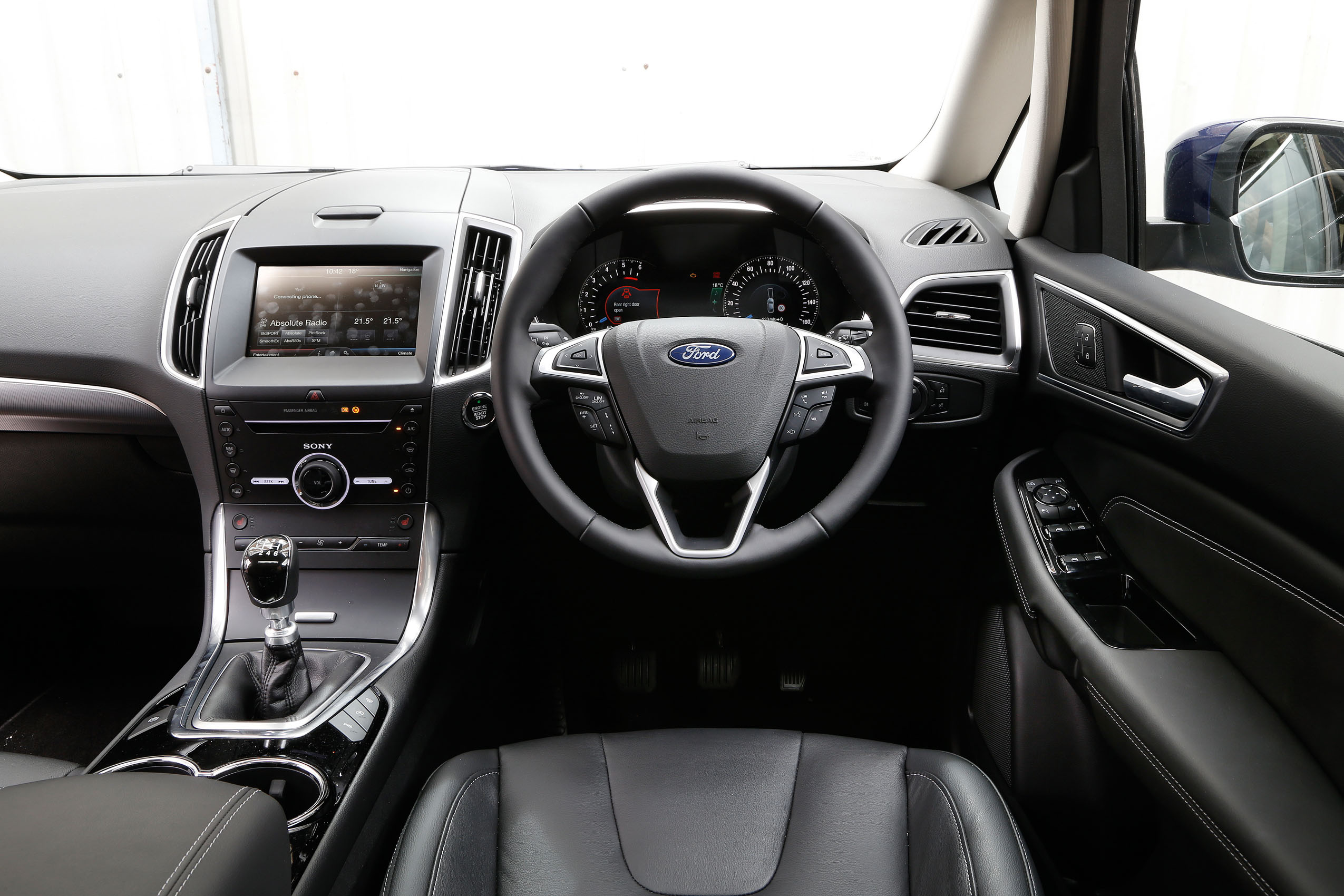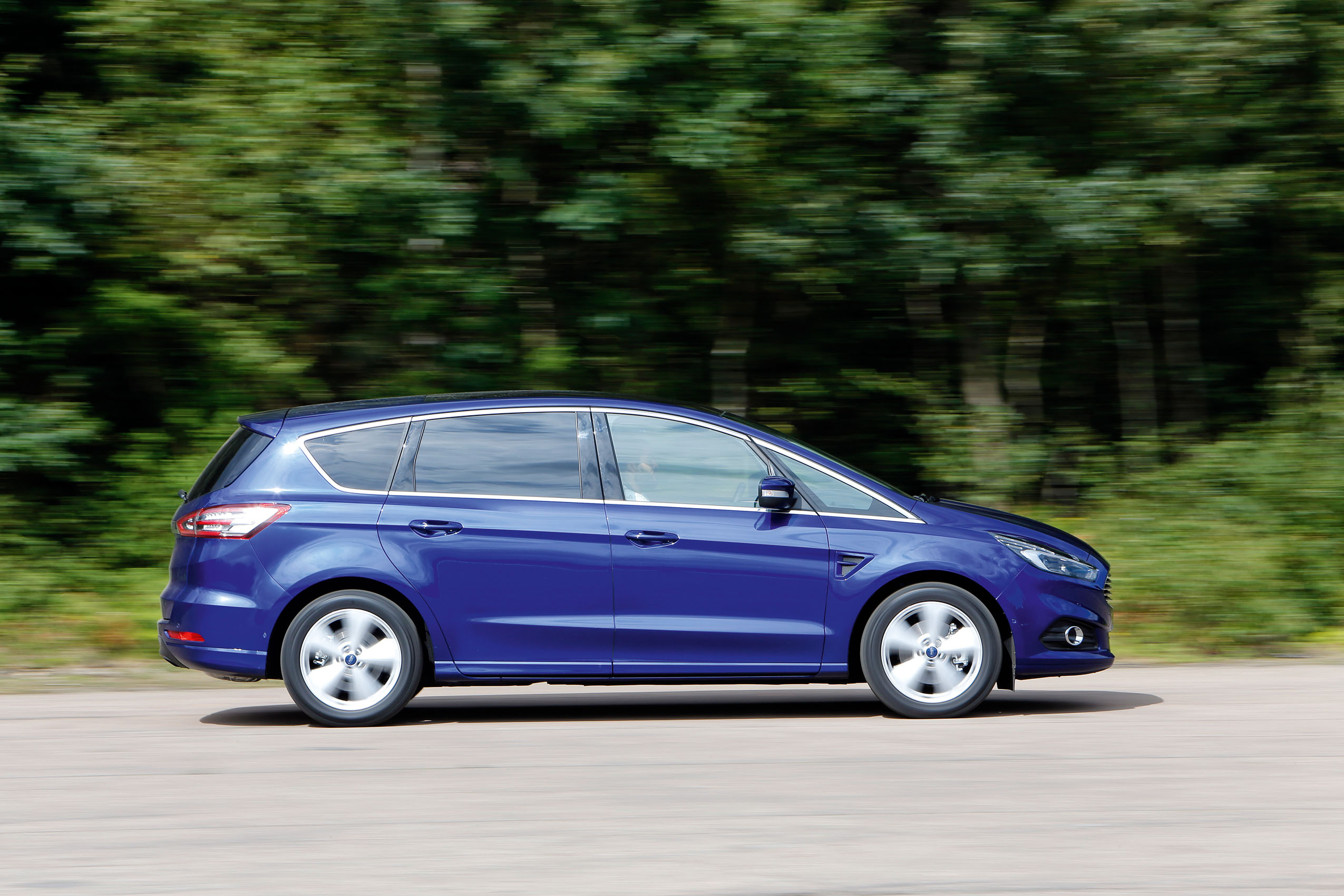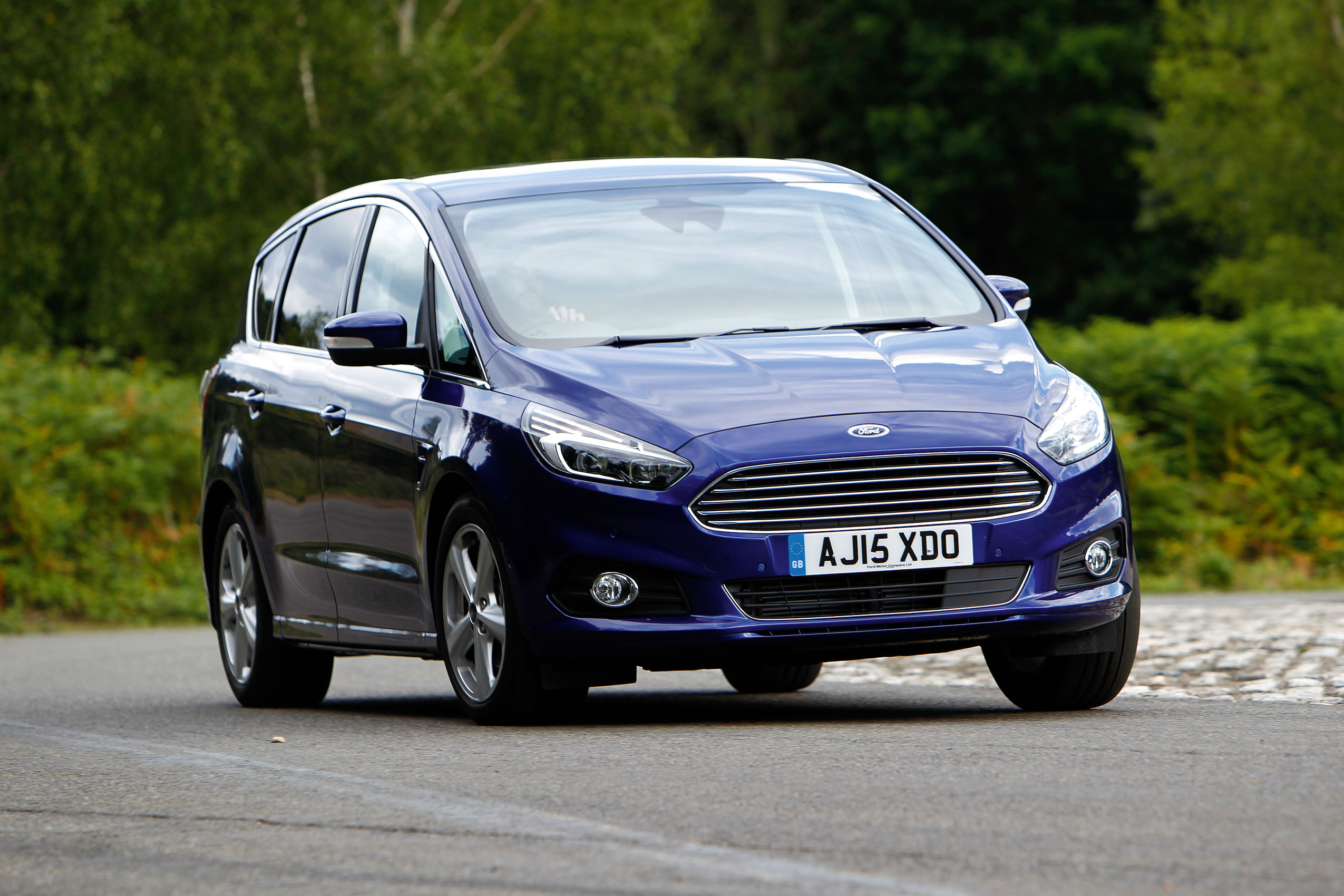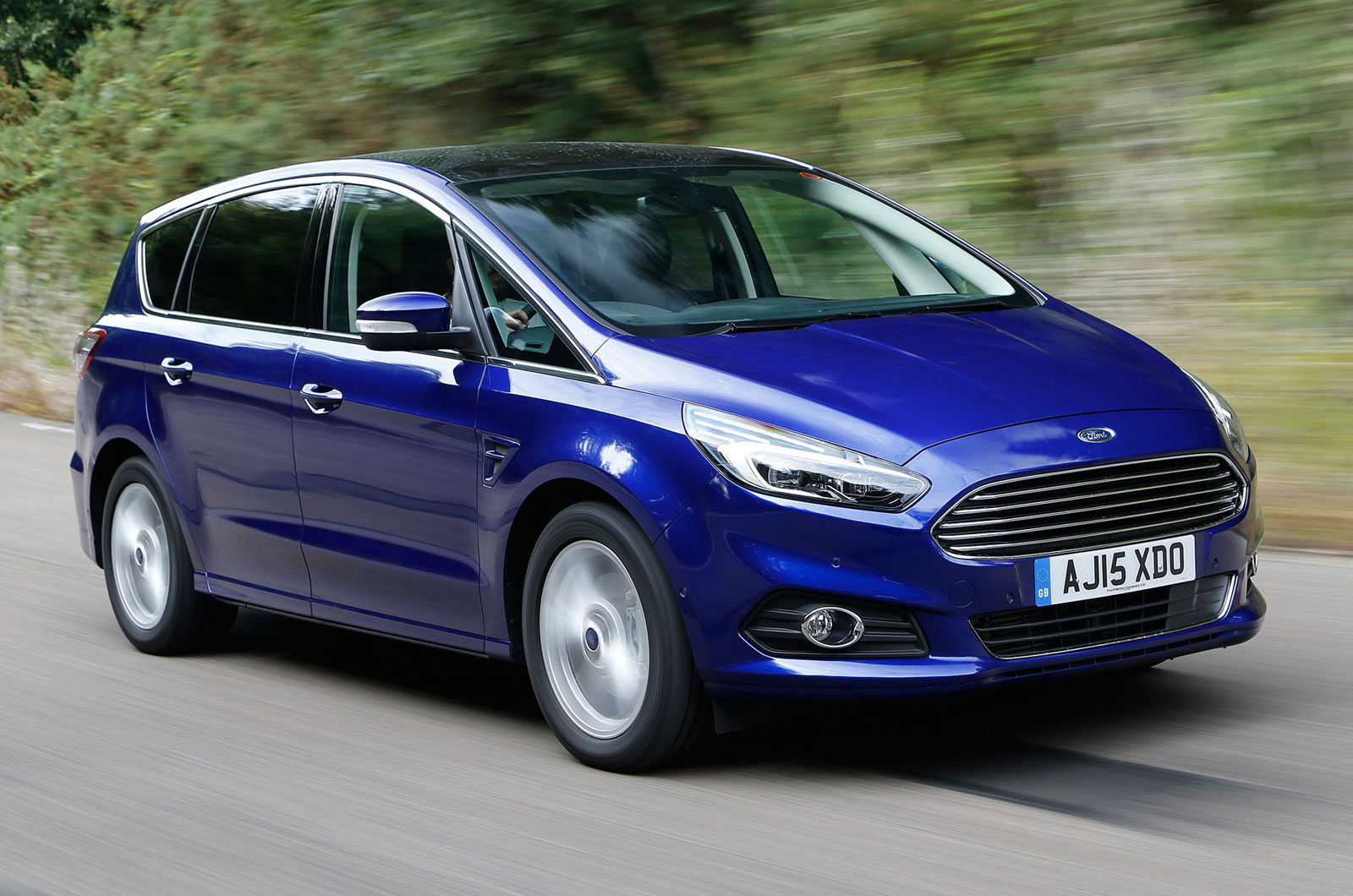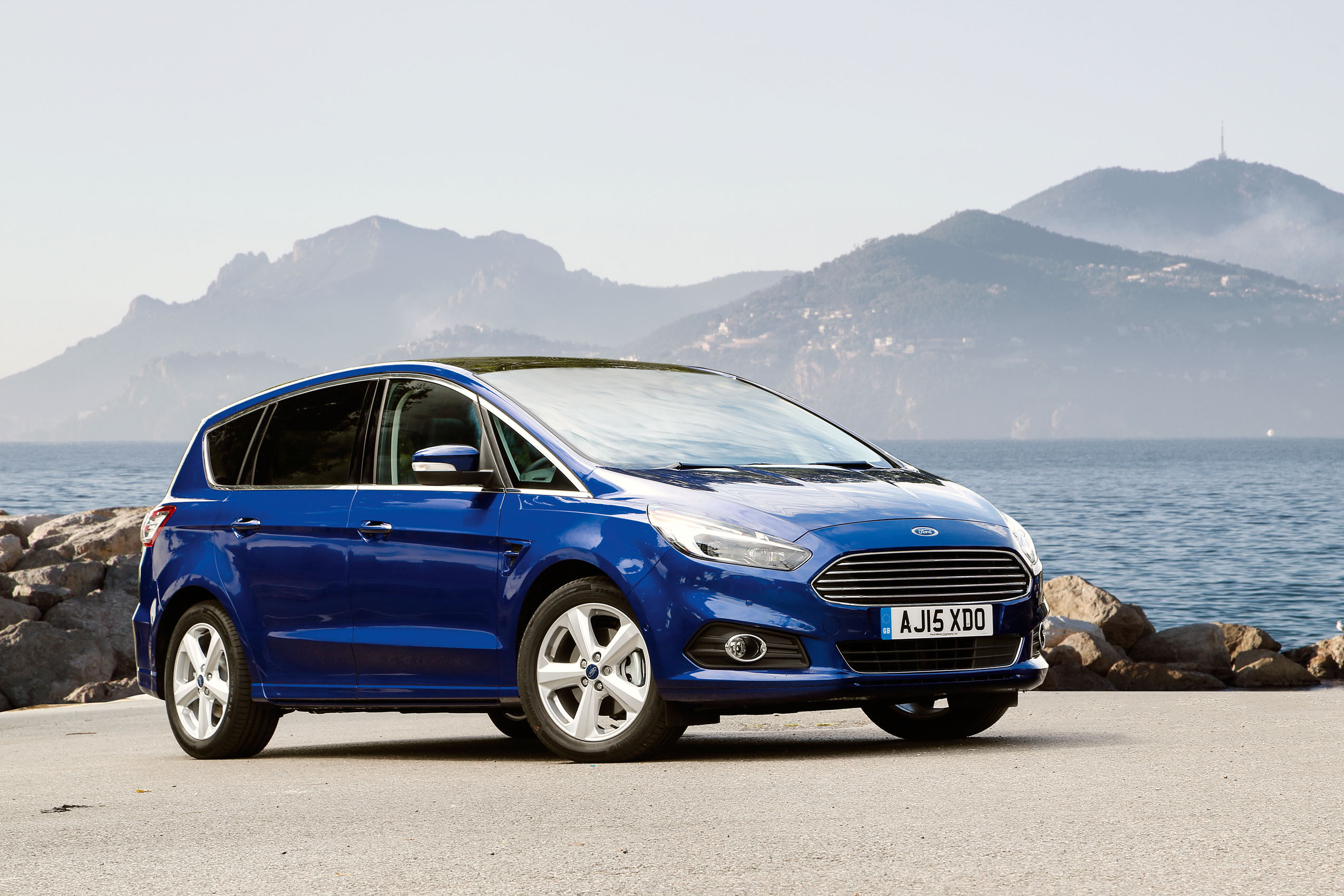The genius of the previous Ford S-Max extended in several different dimensions. It was not only fine-handling but also great-looking and apparently right-sized. Owners got that bit more second and third-row occupant space than a compact seven-seater offered, and a slightly bigger boot – and yet they didn’t have to settle for a car that distantly resembled a converted box van.
But that was then. The S-Max now has myriad imitators and its position is no longer quite so distinct or secure. As our measurements prove, this is still a practical car – even for an MPV. Ford’s preference for stadium-style seating conspires here with an optional panoramic glass sunroof to limit second-row head room, but the car still has 70mm more third-row head room than an equivalent Citroën Grand C4 Picasso.
The Ford’s boot is usefully longer (in five-seat mode) and wider than the Citroën’s, too. Smaller adults can use the S-Max’s third row as well as kids, which is something of a boon. But the same is true of the Vauxhall Zafira Tourer, which has a narrower cabin but slightly more cargo space than the Ford (in five-seat mode) as well as a roomier second row.
Ford’s management of the S-Max’s cabin space is also only so clever. All five rear chairs fold easily and lightly enough for one-handed operation, and the middle three seats also slide fore and aft independently.
However, there’s no ‘lounge seating’ option such as the Vauxhall offers, which might free up extra shoulder and leg room to make the car more comfortable for four occupants. Although wider than the compact seven-seat norm, the Ford’s middle-row seats are quite hard and flat.
However, the front seats are perfectly comfortable, and although the S-Max’s fascia follows that of the Ford Mondeo in setting an unexceptional standard on material richness and quality, it’s certainly pleasant, solid and well provided for storage.
On in-car tech, it is competitive without feeling cutting-edge. Ford’s 10in LCD instrument binnacle promises to be quite sophisticated in the brochure, but it’s less so in practice, consisting of two inset multi-function displays framed by conventional speedo and tacho scales.
An 8.0in touchscreen and DAB are standard, but Ford’s Sony-branded hi-fi is an option even on Titanium Sport models, although it’s relatively affordable at £450. That buys a respectable navigation system, a more powerful amplifier and three extra audio speakers, so it’s decent value and it sounds good enough.
The navigation system lacks the graphics sophistication and mapping detail of the best factory set-ups, but clear directional tulips make it easy to follow. As we’ve written before, it can be a bit unresponsive. Ford’s Sync2 multimedia brings with it decently intuitive voice control functionality for setting destinations, but simply say ‘I’m hungry’ and it’ll bring up a list of local restaurants from the POI database.
For parents of older kids, Ford’s MyKey functionality now includes the in-car entertainment system. Allow your older teenager to drive the car using that special key and you can reduce the maximum volume of the stereo and disable it entirely unless all occupied seats have their corresponding belts done up. You can also ensure that posted speed limits aren’t exceeded, thanks to the car’s speed limit recognition system.
There are three trim levels to choose from, the entry-level Zetec models come with 17in alloys, Sync3 with 8in touchscreen infotainment, parking sensors, sports seats and DAB radio. Upgrading to the Titanium trims gets you Ford's sat nav system, auto wipers and lights, traffic sign recognition and cruise control, while the Titanium Sport gets a sportier bodykit, rear spoiler and sports suspension including heated front seats.
Opt for the Vignale and you will find numerous pearlescent paint jobs, lots of chrome, 18in bespoke alloys and acoustic glass, while inside owners will be greeted by a full leather upholstery, electric seat adjustment, rear-view camera and Sony's infotainement stereo system.


